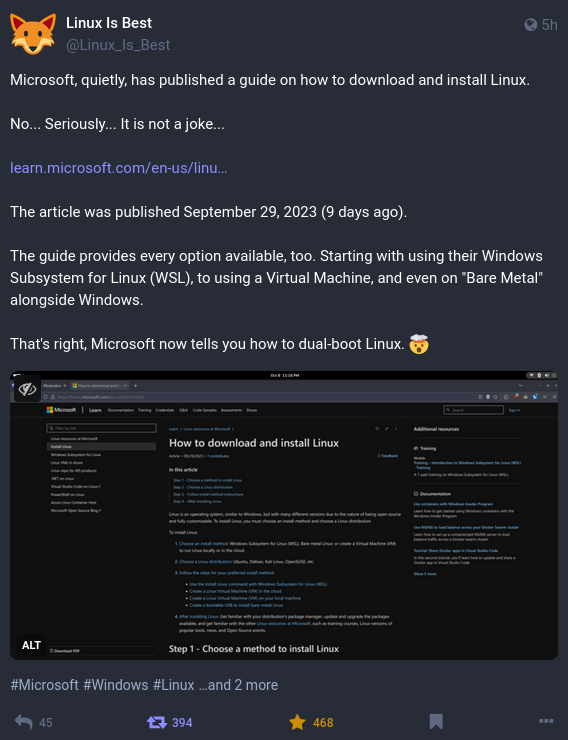this post was submitted on 09 Oct 2023
1843 points (98.2% liked)
Linux
55221 readers
1184 users here now
From Wikipedia, the free encyclopedia
Linux is a family of open source Unix-like operating systems based on the Linux kernel, an operating system kernel first released on September 17, 1991 by Linus Torvalds. Linux is typically packaged in a Linux distribution (or distro for short).
Distributions include the Linux kernel and supporting system software and libraries, many of which are provided by the GNU Project. Many Linux distributions use the word "Linux" in their name, but the Free Software Foundation uses the name GNU/Linux to emphasize the importance of GNU software, causing some controversy.
Rules
- Posts must be relevant to operating systems running the Linux kernel. GNU/Linux or otherwise.
- No misinformation
- No NSFW content
- No hate speech, bigotry, etc
Related Communities
Community icon by Alpár-Etele Méder, licensed under CC BY 3.0
founded 6 years ago
MODERATORS
you are viewing a single comment's thread
view the rest of the comments
view the rest of the comments

I find the distinction that dynamically linking GPL is fine but statically linking it is not to be so ridiculous. That's obviously just an implementation detail. The only conceivable difference other than the pointless "technuchalley your program contains GPL code now as part of the file" is that you have to do dynamic linking, which is slightly slower. How does the fact that your work is dynamically linked vs statically linked make any difference to the people writing GPL libraries??
I think that's for LGPL. For GLP any form of linking requires the code to be licensed under GPL, too. The dynamic linking except isn't that bad of you think about it. It gives you the freedom to update or replace the library at any time. For security critical libs (TLS, GPG, ..) that's a big plus.
Dynamic linking let's you use an already packaged library that its source you don't touch.
Static linking means you have to show the source just in case you did some change.